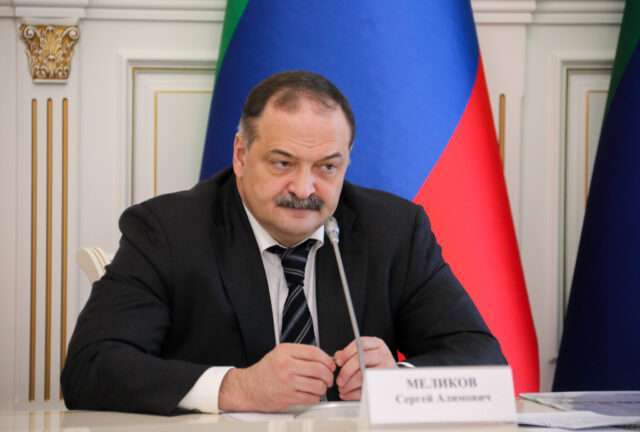Dagestan – Azerbaijan cooperation in transport and logistics supports Russian regional strategy

Kavkaz Files ISSN 2975-0474 Volume 14 Issue 1
Author: Giuliano Bifolchi
The commercial and political partnership between Dagestan and Azerbaijan might support the increasing relations between Moscow and Baku and implement the Russian foreign policy in the South Caucasus and the Caspian Sea region.
On December 6th, 2022, the head of Dagestan, Sergei Melikov, paid an official visit to Azerbaijan and met with Azerbaijani President Ilham Aliyev. Melikov commented on the working visit emphasising the role that Azerbaijan might have in supporting Dagestani transport logistics in developing the International North-South Transport Corridor (INSTC).
Azerbaijani Economy Minister Mikayil Jabbarov stressed the importance of developing the INSTC and noted the increase in the throughput capacity of checkpoints at the state borders, ensuring the speedy passage of goods along the corridor. Since Azerbaijan and Dagestan economic entities have already established relations, Jabbarov proposed to identify several anchor projects, the implementation of which will be controlled by both sides. He also confirmed the interest of the Azerbaijani side in developing processing enterprises in Dagestan.
Dagestan-Azerbaijan Relations: Why do they matter?
On February 22nd, 2022, Russia and Azerbaijan signed a declaration on allied cooperation, which covered the most important areas of interaction between the states and increased bilateral relations. The parties signed the declaration two days before the beginning of the so-called Russian Special’naja voennaja operacija (special military operations) in Ukraine.
Russia wants to realise the INSTC to link the domestic market with the Indian subcontinent. The Caspian Sea region plays a strategic and logistic role in this framework. Therefore, Azerbaijani-Dagestani cooperation is part of Russia’s strategy to expand its exports and trade exchange with Asian markets and overcome the Western sanctions’ impact on the national economy.
Although Azerbaijan has supported the EU security energy strategy by exporting its natural gas to the European market, Baku still has close ties with Russia. Since the Ukrainian crisis in 2014, and especially after the beginning of the Ukraine conflict in February 2022, Brussels has looked at Baku as a necessary partner to decrease EU dependence on Russian natural gas exports. By contrast, although Russia has always had a decisive role in supporting Armenia in the regional confrontation with Azerbaijan, Moscow and Baku have increased and enhanced their bilateral relations.
Increasing relations between Russia and Azerbaijan have alarmed Armenia, which has recently sought to strengthen ties with the West. After the September 2022 Armenia-Azerbaijan military escalation, the Speaker of the U.S. House of Representatives, Nancy Pelosi, visited Yerevan, met with the Armenian Prime Minister, Nikol Pashinyan, and confirmed the strong partnership between the United States and Armenia. Also, the European Union has increased its activities in the South Caucasus, particularly in Armenia, to counterbalance the Russian presence and establish a European peace process to guarantee regional stability.
Azerbaijan-Dagestan cooperation supports Moscow-Baku relations and the Kremlin’s foreign policy in the Caucasus. The Russian Federation considers the South Caucasus a part of its blizhnee zarubezhe (near abroad) and lebensraum (vital space). Therefore, thanks to the Dagestani geographical strategic position and Makhachkala’s diplomacy with Baku, Russia seeks to strengthen and expand the political, commercial, and logistic collaboration with Azerbaijan and counter EU and Turkish regional strategy.
Dagestan’s diplomacy in the Caspian Sea region and the South Caucasus confirms the North Caucasus Federal District (NCFD)’s role in the Kremlin’s regional strategy. The North Caucasus is a natural ‘bridge’ between Europe and Asia and a key asset in Moscow’s foreign policy in the Eurasian geopolitical chessboard. Since the beginning of the Ukraine conflict, Russia has increased its financial and promotion activities in the NCFD by attempting to support the tourist and logistic sectors and attract foreign direct investments (FDIs) from the Arab-Muslim world and African countries.
Do you like SpecialEurasia reports and analyses? Has our groundbreaking research empowered you or your team? Now is your chance to be a part of our mission! Join us in advancing independent reporting and unlocking the secrets of Eurasia’s complex geopolitical landscape. Whether through a one-time contribution or a monthly/yearly donation, your support will fuel our relentless pursuit of knowledge and understanding. Together, let’s pave the way for a brighter future. DONATE NOW and secure your place in shaping the geopolitical narrative.
